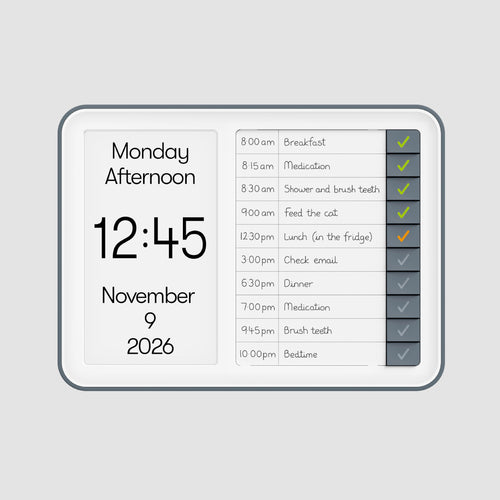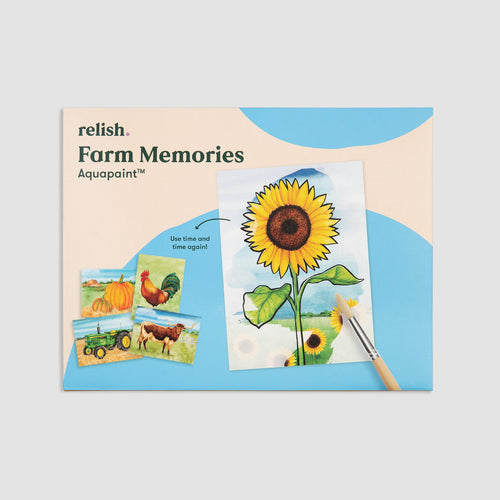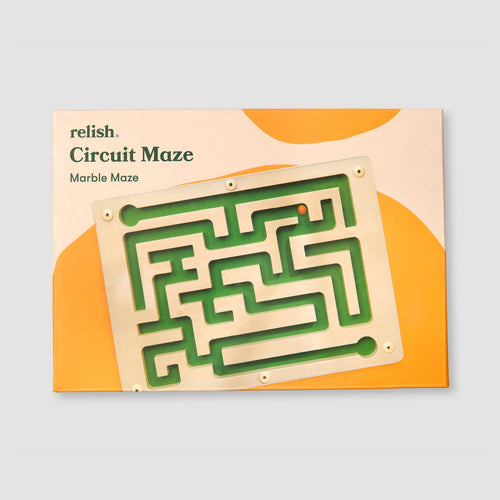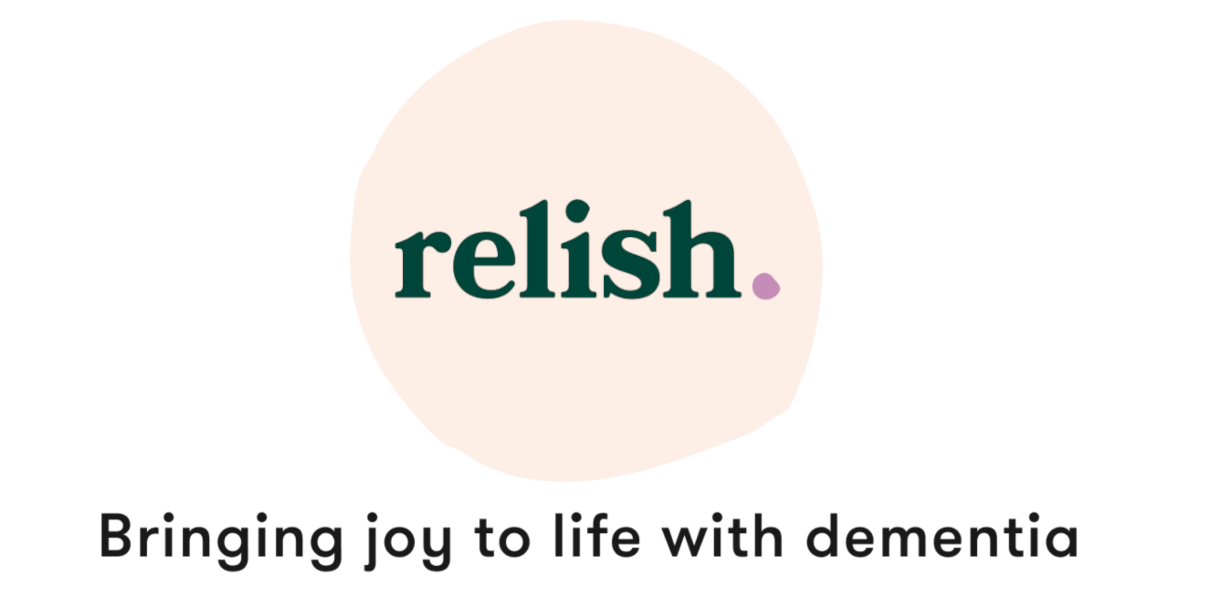November 24, 2020 – UK-based Relish, a social impact company that aims to bring joy and engagement to people with dementia through creating activities and games focussed on wellbeing, recently conducted a study that brought to light what the potential long-term impact of isolation, social distancing and quarantine is having on people living with Alzheimer’s and dementia.
The research followed a study by the University of Liverpool*, which found that reductions in weekly social support in the first lockdown contributed to worse quality of life and anxiety in those affected by dementia and older adults, as well as reduced wellbeing for their caregivers. The Alzheimer Europe Board** also highlighted how physical distancing rules are affecting people with dementia - who ‘may find their normal routines disrupted, lack cognitive stimulation, feel lonely and anxious and risk depression.’
“The restrictions put in place as a result of Covid19 can have many negative impacts for people living with dementia and their families, including isolation, disrupted routines and a lack of cognitive stimulation,” says Dr Simon Evans, Principal Research Fellow for the Association for Dementia Studies at the University of Worcester. “This makes it more important than ever to take a person-centred approach to wellbeing, focusing on individual abilities and preferences and incorporating meaningful activities in their daily lives.”
Approximately 5.8 million Americans age 65 and older are living with Alzheimer's and dementia and around 850,000 people are living with dementia in the UK. Restrictions imposed due to the pandemic have made it even more challenging to help them feel connected, happy and stimulated. The research found that 43% of friends and family of those living with dementia say their loved one is unhappier now than they were at the start of the year.
“The coronavirus lockdown has been a very challenging time for us, and I don’t think anyone could have anticipated just how difficult it’s been. Looking ahead to Christmas, it is sad to think we may not get to spend time with our friends and family. I am lucky to have my wife, but sadly so many people are alone,” explains Keith Oliver, celebrated author and campaigner who was diagnosed with Alzheimer’s at the age of 55. Now 64, he had been self-isolating with his wife Rosemary during the early part of the pandemic.
“We try and do a lot of enjoyable activities together that keep my brain and body engaged. But more than half my care plan is based around doing more activities to help me keep well, some of which disappeared with the Covid-19 restrictions.”
“Although there have been many challenging days over the past months there have been many positive ones as well - it really has been a Corona-coaster of a year. When social contact with loved ones is so limited, an individual approach to cognitive stimulation for people living with dementia is vital for the months ahead.”
A Socially-Distant Holiday Season
With four weeks to go until Christmas, lockdowns and prolonged isolation have left many friends and family of those living with dementia (86%) worried they won't be celebrating the festive season with their loved one. Alongside growing anxiety about the long-term impact of social distancing on their mental wellbeing (90%), almost half (49%) of those concerned about Christmas fear this will be their loved one’s last.
Relish, revealed that a third (36%) of those concerned about a loved one with dementia over Christmas are worried about them being on their own, and 29% say this will be their first Christmas apart in recent years. Of those surveyed, just 24% indicated that their loved one was being cared for in a care home, the rest are living at home including 19% who are living by themselves.
Relish founder and CEO, Ben Atkinson-Willes, says: “With more time spent apart, it is understandable that friends and family caring for loved ones with dementia may feel helpless and anxious – it is a particularly difficult time. And whilst there can never be any substitute for being in the company of your loved one, knowing how you can support their wellbeing and joy, even from afar, can help alleviate some concerns.”
Now, Relish is working with campaigners and academics to offer advice for supporting the mental wellbeing of people with Dementia during the winter lockdown, encouraging others to do the same on social media using #DementiaWithJoy. Advice includes:
1 - Find opportunities to engage the mind
Author and campaigner Keith Oliver, who lives with Alzheimer’s says: “Find an opportunity to engage the mind. This is really important when isolated, especially during darker days of winter. Whether by yourself or with others, find different activities or games to keep busy.”
2 - Connect from a distance
Samantha Leech, Relish employee, has 20 years’ experience as a dementia care professional. She says: “Even if you can’t see your loved one with dementia face to face, the natural human connection that is so important to happiness is still possible. Give daily moments of joy through phone calls and sending letters and postcards – even better, send photos with little stories and your favourite memories.”
3 - Stay socially active
Dr Clarissa Giebel, Research Fellow at Liverpool University and the NIHR ARC NWC says: “For people with dementia, staying physically, cognitively and socially active as much as possible is key to getting through social isolation, especially during winter. Continued engagement is critical, both for people with dementia, and their carers.”
4- Understand what wellbeing means to the individual
Ben Atkinson-Willes, founder and CEO of Relish says: “A continued focus on overall wellbeing is so important, but it should be recognised that wellbeing can come from a combination of different levers, unique to the individual. For people with dementia, we aim to develop accessible products and activities that support these levers: independence, learning, identity, joy, relationships, keeping active, security and purpose.”
5 - Use music to reminisce and relax
Samantha Leech, Relish employee, says: “Although it’s good to start each day with a purpose, make sure to build in time to really relax. Create a playlist - listening to music can be powerful for people living with dementia to reduce anxiety by helping to reminisce and meditate.”
Notes to editors
RELISH
Bringing joy and engagement to people with dementia, and their care-givers, is often overlooked, but critical to overall wellbeing. Relish products are designed and developed recognising the varying needs of those with dementia, identifying the different stages of dementia, different interests of individuals and different needs – whether that is to bring joy, stimulate the mind, spark memories, install calm, comfort or reassure. Importantly, they keep people with dementia physically, mentally and socially active, all supporting the overall wellbeing of people with dementia.
Relish products are available on www.relish-life.com. For more information on the Relish 8 levers for wellbeing, see:
Ben Atkinson-Willes, founder and CEO of Relish is available to speak to media.
Relish is donating 10% of all sales of the Musical Bingo from now until the 23rd December to the Alzheimer’s Society.
Keith is available to speak to media. Find out more about Keith’s journey here: https://www.alzheimers.org.uk/blog/keith-oliver-coronavirus-social-isolation-diary
Research sources
*University of Liverpool: or
**Alzheimer Europe Board: Relish research
Survey of 1002 UK adults with a friend or family member living with dementia. Research conducted Oct/ Nov 2020 by Sapio Research.
Relation to loved one with dementia:
Close friend
29%
Grandparent
26%
Parent
23%
Parent in-law
12%
Other
10%
Spouse
6%
Sibling
5%






















